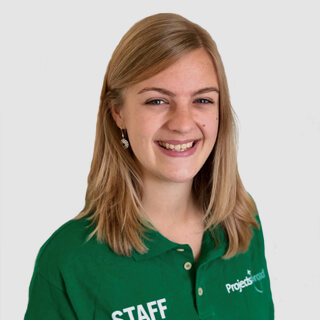Navigating a career in medicine involves more than good grades. Practical experience is pivotal in shaping future healthcare professionals, offering opportunities that textbooks simply cannot provide.
As a medical student, you’ll likely have heard of terms like medical work experience and medical electives. But what do these concepts mean and which is right for you?
Let’s delve into what defines medical work experience and medical electives. We’ll explore their relative benefits and help you decide which option is best for you.
From direct observation to developing global skills, understanding these pathways will pave the way to a successful career in medicine.
What is medical work experience?

Medical work experience is a crucial step for anyone pursuing a career in medicine and healthcare. It simply means the opportunity to observe and participate in the day-to-day activities of medical professionals.
This is something all medical students looking for insights and practical skills will need to complete.
Why do medical students need work experience?
There’s no way around it; getting medical work experience is crucial for success. Without it, you’re unlikely to qualify to become a healthcare professional.
Medical students need work experience for several reasons:
- Practical exposure: Bridging the gap between theoretical knowledge and real-world application.
- Skill development: Developing essential clinical and interpersonal skills.
- Career insight: Gaining a clearer understanding of different specialties and career paths open to you.
- Competitive edge: Enhancing your CV, making you a more attractive candidate for medical school and beyond.
- Networking: Connecting with healthcare professionals and mentors around the world.
Don’t miss this opportunity to take your medical studies to the next level.
What does medical work experience involve?
Medical work experience typically involves shadowing healthcare professionals, assisting with basic tasks, and observing medical procedures.
Specific activities might include:
- Patient interaction: Communicating with patients and understanding their experiences.
- Clinical skills: Assisting with checking vitals, preparing equipment, and other support tasks.
- Observation: Watching surgeries, medical procedures, and patient consultations.
- Administration: Learning about the behind-the-scenes work that keeps healthcare facilities running smoothly.
Some of these tasks might be more relevant to your goals than others. Research medical work experience placements carefully to ensure they provide a balance of tasks. This will give you right kind of experience.
Where can I gain medical work experience?
There are a number of settings where it’s possible to gain medical work experience. You should look for the one that serves your interest as a medical student.
You can gain medical work experience in:
- Hospitals: Offering a broad view of different departments and specialties.
- Clinics: Providing insights into outpatient care and patient interactions.
- Nursing homes: Focusing on geriatric care and long-term patient management.
- Communities: Emphasising public health initiatives and preventive care.
- International placements: Offering a global perspective on health issues and practices.
What is a Medical Elective?

A medical elective is a period during medical training where students explore different specialties, healthcare systems, and medical practices outside the curriculum. Electives are typically undertaken towards the end of university, allowing you to tailor your education to your career aspirations.
While medical electives are a type of work experience, they’re a more specific version of it. Medical work experience is a broader term that includes both medical electives and other kinds of placements.
In the UK, medical electives are:
- Placements up to 12 weeks in length.
- A period of time spent outside of medical school, generally abroad.
- A chance to explore medical specialties.
- Alternatively, a chance to try out a different aspect of healthcare, like teaching or research.
You’re responsible for finding and organising your medical elective. At the end of it all, it’s bound to be one of the most memorable parts of your journey as a medical student!
Can I do a medical elective abroad?
Yes, many medical students choose to do their electives abroad. This is a chance to travel, meet new people, and experience a new world of healthcare. Going abroad is one of the quickest ways to learn and grow.
International medical electives offer unique advantages, such as:
- Exposure to diverse medical practices: Learning how different healthcare systems work, including the conditions and treatments found in other countries.
- Cultural competence: Gaining insights into the cultural factors that influence health, along with patient interaction with people from different backgrounds.
- Resourcefulness: Developing the ability to work in setting with different resources, often with limited medical supplies.
- Broadened perspectives: Understanding global health challenges and solutions.
At Projects Abroad, we provide a variety of international medical internships. Choosing one will provide you with valuable experience in diverse healthcare settings across the globe.
We understand that going abroad can be extra complexities such as funding and logistics. Let our Project Experts support you, making the process easy and hassle-free.
For more support on securing an overseas medical internship, find resources and advice at the British Medical Association.
What does a medical elective involve?
The exact activities you’ll complete on your medical elective vary. It depends on the setting you work in, the country you’re in, and what departments you select. To help you get an idea of what this will look like, view the list of typical medical elective tasks below.
A medical elective typically involves:
- Clinical rotations: Working in different departments such as nursing, occupational therapy, or midwifery.
- Hands-on practice: Performing clinical tasks under supervision, such as suturing and assisting in surgeries.
- Research opportunities: Conducting research projects on medical topics of interest.
- Education: Attending lectures, workshops, and seminars to deepen your medical knowledge.
Research medical electives carefully for a clear breakdown of what activities are involved.
Who needs to complete a medical elective?
If you’re a medical student aspiring to become a healthcare professional, then medical electives are for you. They’re often a requirement of the course, but even if they’re not, completing one will help you on your journey.
Medical electives are generally required for:
- Medical students: Particularly those in their final years of study, seeking specialised knowledge and experience.
- Aspiring specialists: Those who want to explore specific fields before committing to a medical specialty.
- International medical graduates: Seeking to understand and integrate into different healthcare systems.
Essentially, if you want to work in healthcare, you should be looking into medical elective programmes.
How to apply for medical electives
Once you know you definitely want to join a medical elective, you need to begin your application. This can be daunting, so let’s break it down into easy, manageable steps.
Here’s your route to a standout medical elective application:
- Research: Identify programmes and institutions that offer electives in your area of interest.
- Application: Submit required documents such as your CV, academic transcripts, and a personal statement.
- Approval: Obtain necessary approvals from your medical school and the host institution.
- Preparation: Arrange travel, accommodation, and any necessary visas if you are going abroad.
- Health and safety: Ensure you meet all health requirements, including vaccinations and insurance.
Projects Abroad simplifies this process by offering structured medical elective programmes. These provide you with support for logistics, preparation, and securing your placement.
How to find medical work experience
Securing medical work experience will enhance your understanding of healthcare and prepare you for future career opportunities. Consider going abroad for the best medical work experience opportunities.
Why Gain Medical Work Experience Abroad?
It can be tempting to gain experience in your home country where you plan to work. However, many medical students choose to go abroad. By doing a medical internship overseas, you unlock a host of advantages that you won’t get by staying at home.
Gaining medical work experience abroad offers several benefits:
- Global perspective: Experiencing healthcare systems in different countries broadens your understanding of medical practices and challenges.
- Cultural awareness: Interacting with patients from diverse backgrounds enhances your communication skills and cultural sensitivity.
- Personal growth: Stepping outside your comfort zone fosters resilience, adaptability, and independence.
- CV enhancement: International experience stands out to medical schools and future employers, demonstrating your commitment and adaptability.
That’s why it’s worth taking the leap and finding an overseas placement. Plus, it’s an excuse to travel the world!
Medical internships for undergraduate students
If you’re an undergraduate medical student, why not join our bespoke medical internships tailored for undergraduate students?
On our Undergrad Medical Internships, you will enjoy:
- Structured programmes: Designed to provide practical experience and mentorship from healthcare professionals.
- Wide range of specialties: Opportunities to explore various medical fields such as paediatrics, surgery, obstetrics, and more.
- Educational support: Work alongside local doctors and nurses, participating in clinical tasks and observing procedures.
- Cultural immersion: Immerse yourself in the local community, gaining insights into healthcare disparities and global health challenges.
- Professional development: Develop clinical skills, build confidence, and clarify your career goals under supportive supervision.
By joining an Undergrad Medical Internship, you can visit amazing countries such as:
- Peru: Support communities in Cusco and visit the iconic Machu Picchu.
- Nepal: Learn from Kathmandu doctors and discover the majestic Himalayas.
- Tanzania: Help out in a developing country and join an unforgettable safari.
- Greece: Support top doctors while exploring the ancient sights of Athens.
You’ll be immersed in some of the world’s most spectacular destinations. Provide much-needed support in understaffed hospitals and learn quickly in a fast-paced environment.
Whether you choose to volunteer locally or embark on an international adventure, medical work experience is invaluable. Start your journey towards a successful career in healthcare today.
Start your journey to a medical career
Get in touch today
Our accreditations


















